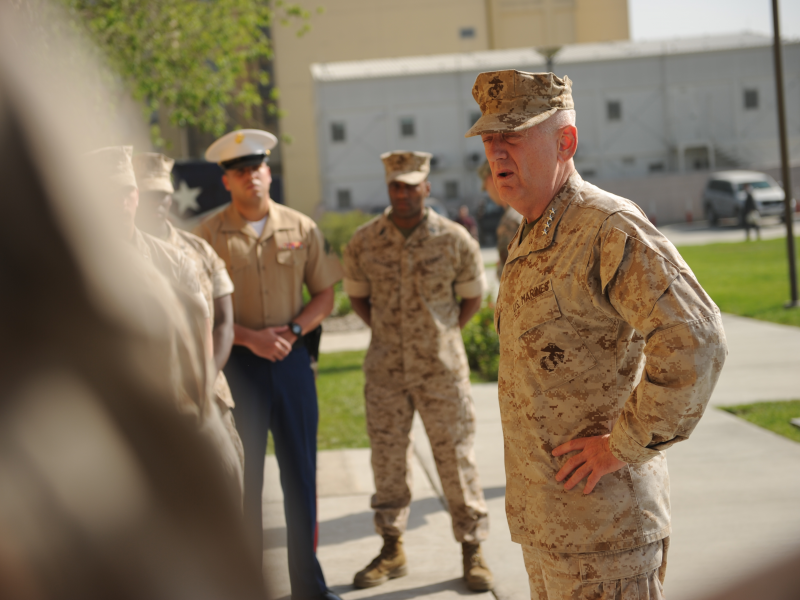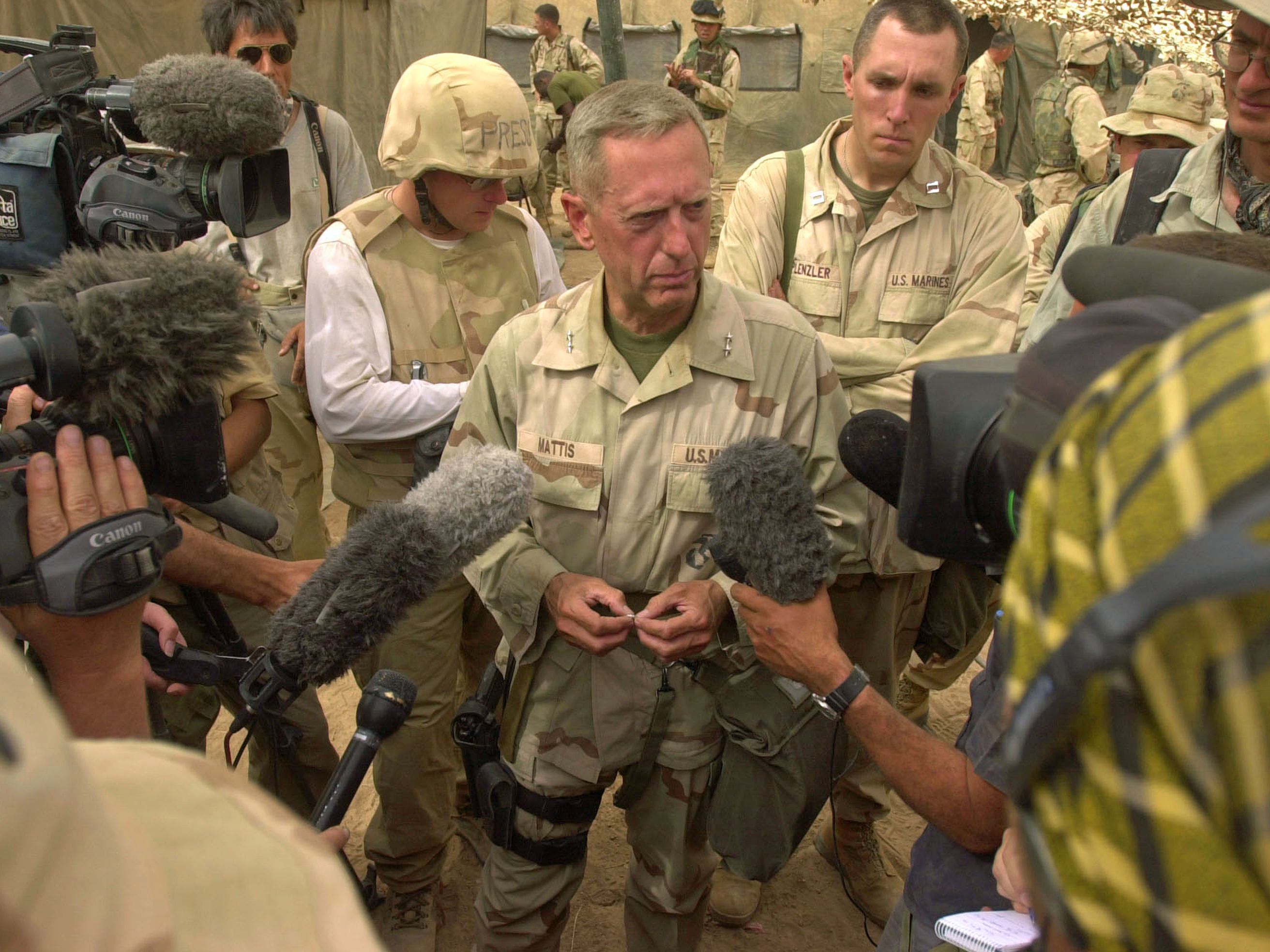President Donald Trump just forced out Defense Secretary James Mattis two months early, after Mattis criticized Trump for betraying allies.
Over the past two years, the relationship between Trump and Mattis has deteriorated. Mattis was once one of Trump’s most highly decorated cabinet members. But Mattis ultimately resigned after Trump decided to pull American troops out of Syria.
Upon Mattis’s nomination in 2016, the Defense Secretary was highly regarded as a masterful leader and scholar of war. According to a number of those who served with him, he’s a well-read history buff with a strategic mind, a senior man who is not above talking to even the most junior personnel, and a sometimes gruff, opinionated leader who isn’t afraid to tell it like it is.
Business Insider spoke with a number of people who served with Mattis, and gathered up other anecdotes, to understand what the former four-star general is really like when he’s in charge.
Here's what we learned.
Jacob Shamsian contributed to this report.
Mattis has often been praised by senior leaders at the Pentagon as both a strategic thinker with an encyclopedic knowledge of history, and an incredible leader.
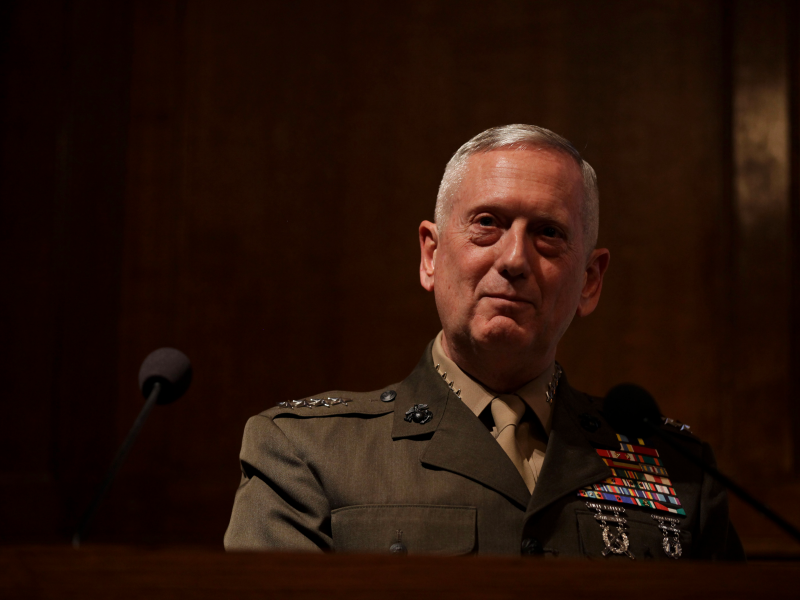
That reputation was earned over a 44-year career in the Marine Corps, where he rose to the highest rank of four-star general, eventually retiring as the top leader of US Central Command in 2013.

Before he took that job, then-Secretary of Defense Robert Gates praised him as one of the most formidable "warrior-scholars" of his generation. "General Mattis is one of our military’s foremost strategic thinkers and combat leaders," he said.
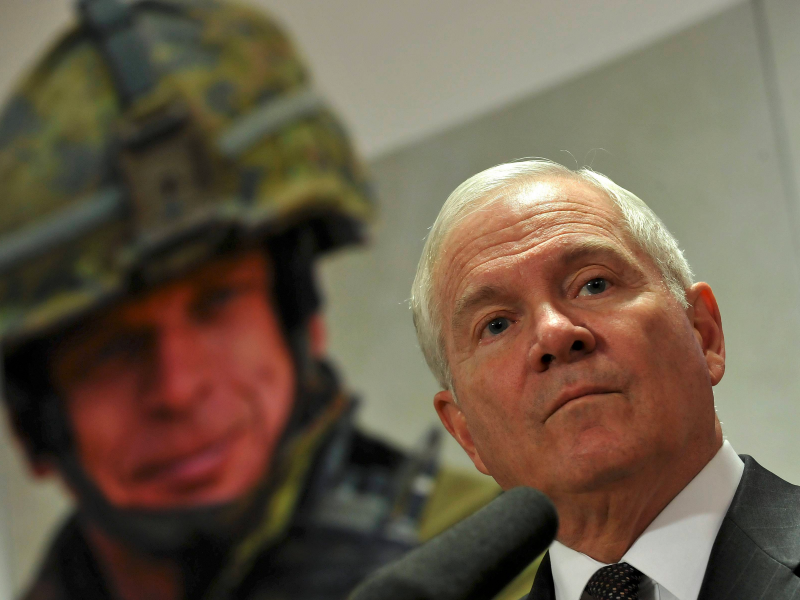
Source: Stripes
And Adm. Michael Mullen, then chairman of the Joint Chiefs of Staff, told reporters of Mattis: "I watched him interact in NATO at the highest levels, diplomatically, politically, on very sensitive subjects. I have great confidence” in his skills.
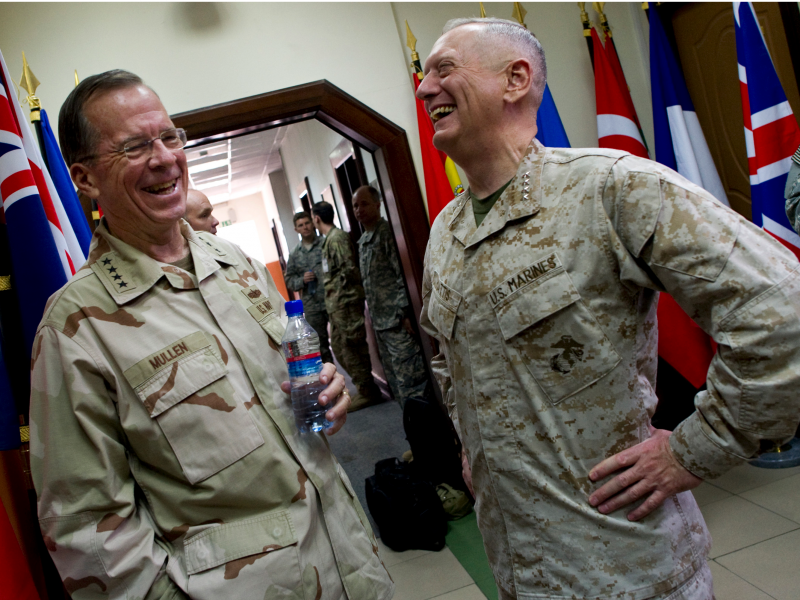
Source: Marine Corps Association
Mattis isn't just admired by the top brass. His interactions with junior troops over the years has earned him legendary status among active-duty and veterans alike.
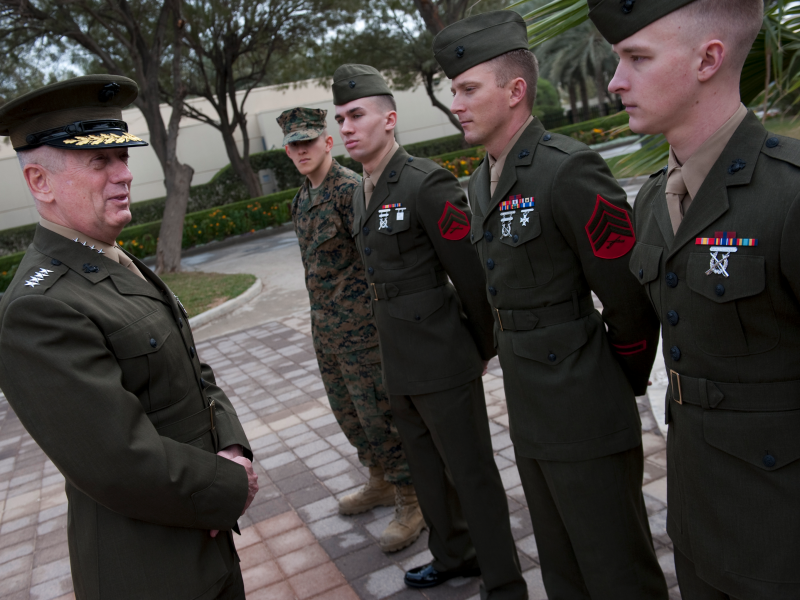
Nate Fick, a former Marine captain who first served as a 2nd lieutenant under Mattis while he was in charge of Task Force 58 in Afghanistan, recalled to Business Insider the moment he realized "this guy was an incredible leader."

It was a cold night in Dec. 2001 at the Marines' patrol base in Kandahar, Fick recalled. They had been patrolling outside of the base, but once they were back, Fick had ordered his Marines to have two men awake in each hole on perimeter security, while everyone else slept.
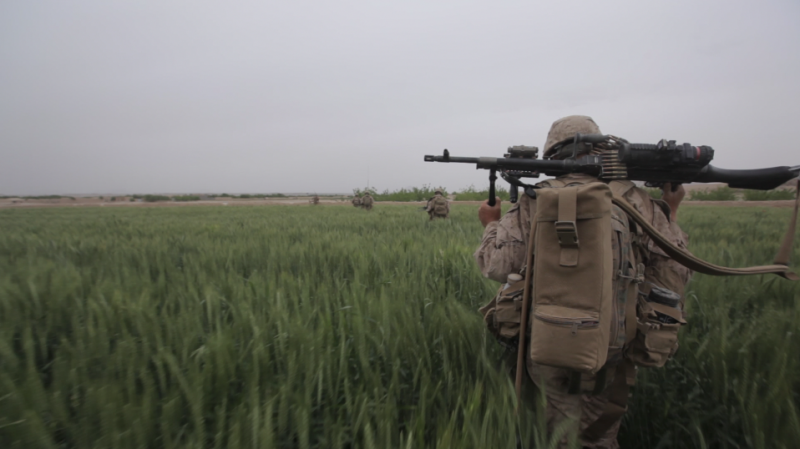
"I was out walking the lines one night at 2, maybe 3 a.m.," Fick said, adding that he was coming closer to a fighting hole his Marines were manning. "As I got closer, I saw a third head."

He was initially angry that there was another Marine either not sleeping or away from the hole they were supposed to be in, but then he realized, "It was General Mattis."
"He had stopped to talk to the sergeant and the lance corporal."
Mattis was doing the same thing that Fick was doing: Checking on the junior Marines.
"Nobody would've criticized Mattis if he had a lieutenant like me heating up his MREs and if he stayed inside to sleep on a cot," Fick said.
"But Mattis understood that it all comes down to personal leadership. He’s the classic fighter leader. He’s the player coach. He’s out there with his troops," he explained.
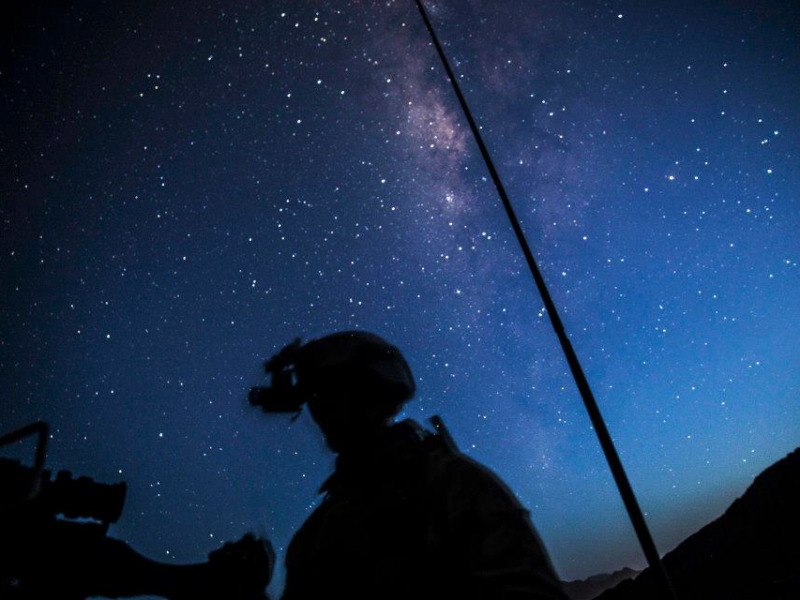
"You can have all the staff meetings you want, but theres no substitute for walking around and talking to people who do the work."
Fick detailed a bit more of the story in his book, "One Bullet Away." The general then asked if the Marines had any complaints, to which one replied, "Just one, sir. We haven't been north to kill anything yet."
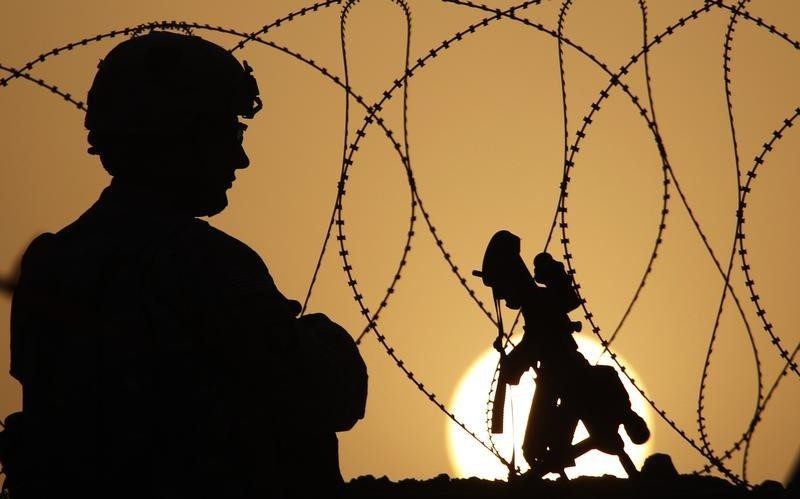
Mattis patted him on the shoulder and told him: "You will, young man. You will. The first time these bastards run into United States Marines, I want it to be the most traumatic experience of their miserable lives."
There's a similar story about Mattis even before the war from 1998, when he was serving at the Marine Corps Base in Quantico, Virginia.

It was Christmas Day, and then-Marine Commandant Gen. Charles Krulak always brought cookies to officers and other troops in the D.C. area who had to stand duty on that day. When he walked in to surprise the officer on duty - which should have been a Major - he asked, "Who's the officer of the day?"
The lance corporal there said, "Sir, it's Brigadier General Mattis." After a brief back-and-forth where Krulak thought he was being misunderstood, he said, "OK ... who was the officer who slept in that bed last night?"
"And the Marine said, 'Sir, Brigadier General Mattis,'" Krulak later told Stars & Stripes.
Then, Gen. Mattis walked around the corner, in his duty uniform. He explained to Krulak that he took the Major's duty since he had a family at home, and Mattis didn't.
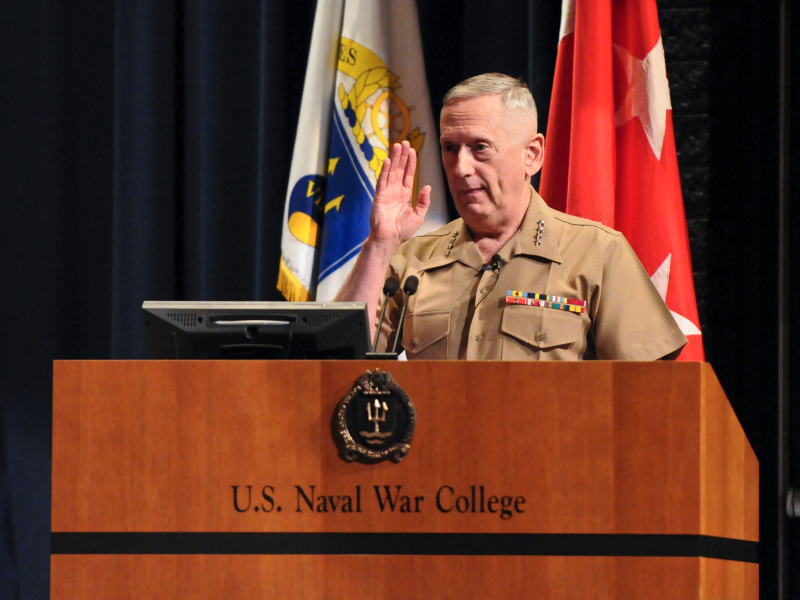
"I'm a bachelor," Krulak recalled him saying. "I thought why should the major miss out on the fun of having Christmas with his family, and so I took the duty for him."
"That's the kind of officer that Jim Mattis is," Krulak told a professor at the US Naval Academy of the encounter.
Stanton S. Coerr, a Marine officer who served with Mattis on multiple occasions, recalled their first meeting in 1994, when Mattis was a colonel in charge of 7th Marine Regiment in 29 Palms, California.
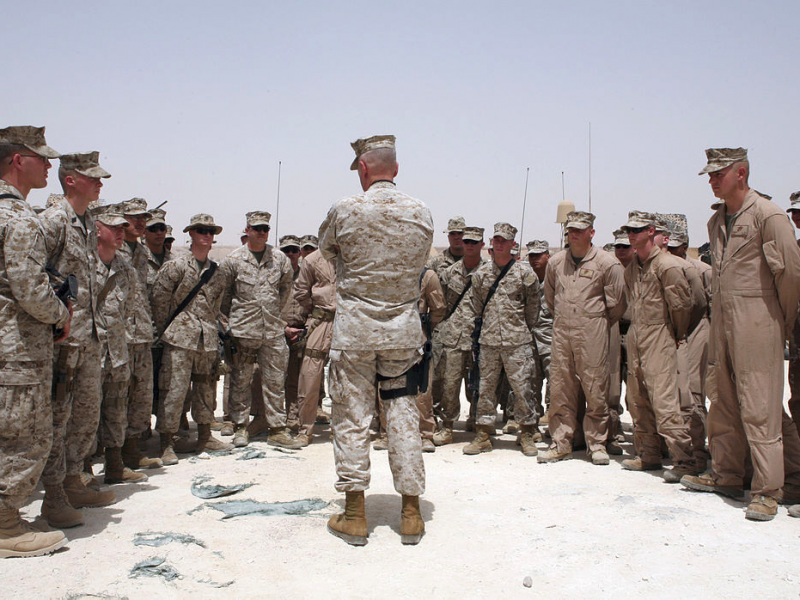
Coerr was checking into 2nd Battalion, 7th Marines as a captain, expecting only a brief talk with the top leader of the regiment.
"Colonel Mattis called for me. He stood to greet me, and offered to get coffee for me," he wrote in The Federalist.
"He put a hand on my shoulder; gave me, over my protestations, his own seat behind his desk; and pulled up a chair to the side. He actually took his phone off the hook - something I had thought was just a figure of speech - closed his office door, and spent more than an hour knee-to-knee with me."
That was quite different than the five minute meeting that Coerr was expecting.
In 2003, Mattis was the commanding general of 1st Marine Division, and he was getting ready to take his troops into harm's way with the invasion of Iraq. Before they crossed the border, every single person in the unit received a now-famous letter to inspire them before battle.
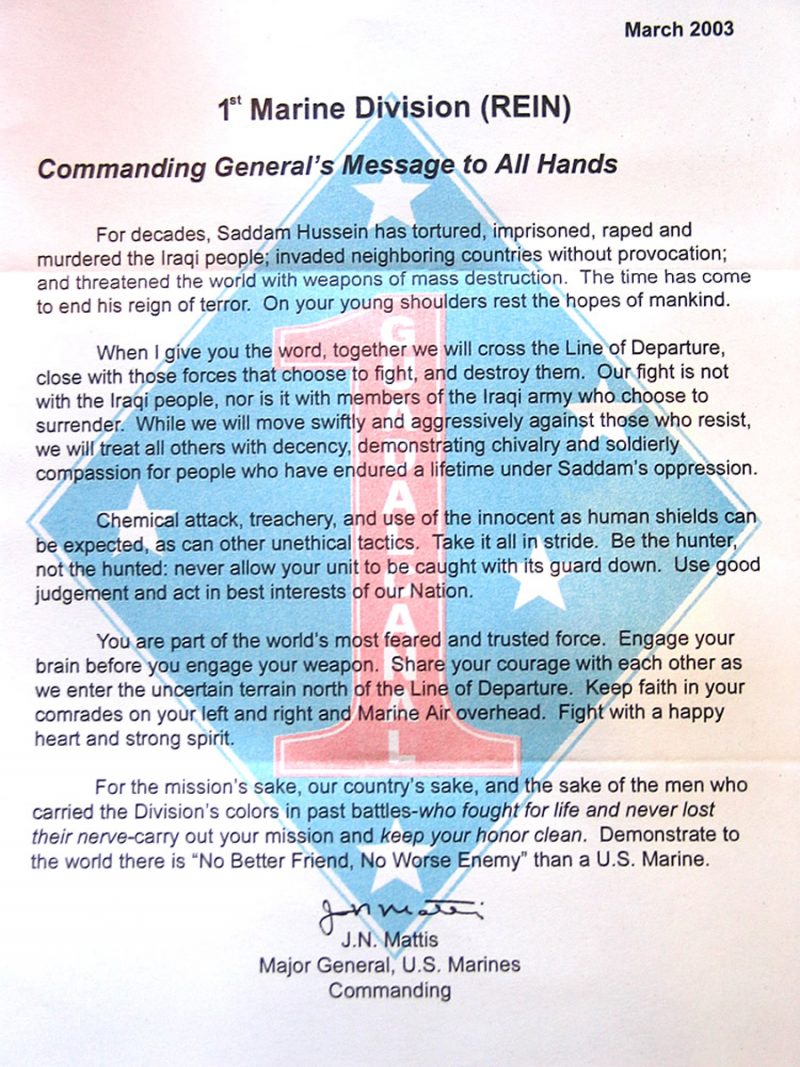
"On your shoulders rests the hope of all mankind," Mattis wrote in a one page letter that instructed his Marines to use good judgment and take care of innocent civilians who had suffered under Saddam Hussein's regime. "Carry out your mission and keep your honor clean. Demonstrate to the world there is 'No Better Friend, No Worse Enemy.'"
Jack Mandaville was just a lowly Private First Class six months out of boot camp when he received it. "I still have that letter," he told Business Insider.
"A couple of months later, after Iraq fell into US hands, Major General Mattis came to speak to our battalion as we sat in Al Diwaniyah, Iraq," he recalled.

"I have sat through multiple speeches given by senior officers. They are typically rife with platitudes and disingenuous praise. This was not one of those speeches.
"Mattis spoke like an enlisted man. He spoke to the enlisted man. He did this while keeping a gentlemanly manner about him. In that speech, he sounded like an articulate warrior scholar as he simultaneously praised us with unrepeatable expletives. He understood war. More importantly, he understood the people fighting it. We were the generation that started calling him "Mad Dog.'"
The first story retired Sgt. Maj. Carlton Kent recalled was of a time when he and then-Lt. Gen. Mattis were walking with a Marine squad on the streets of Ramadi during the Iraq War. "We went to this one outpost," Kent, who retired as Sergeant Major of the Marine Corps, told Business Insider.
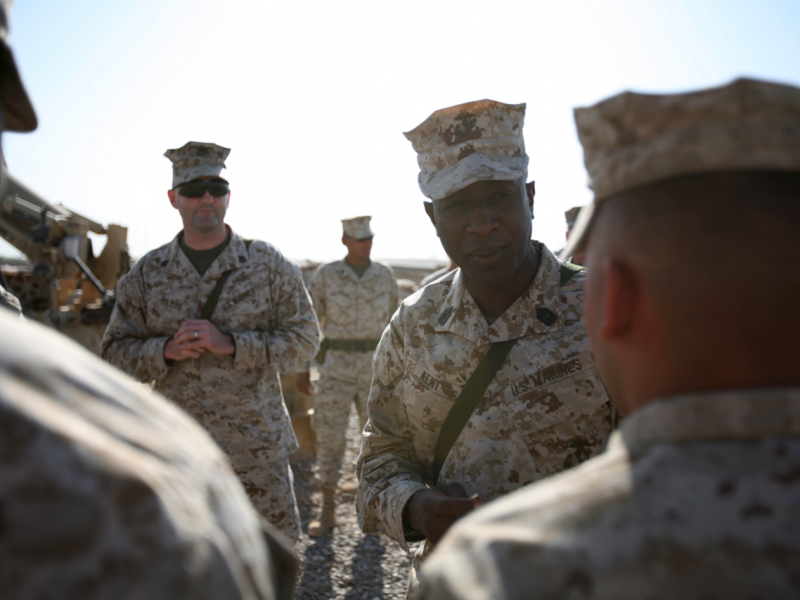
There they encountered a group of Marines standing post, maintaining security. Shortly after, they all started taking enemy fire, and the machine gunner started unloading on insurgents, screaming all kinds of "four-letter words" along the way.
When it was all over, the junior Marine was a bit embarrassed, thinking he might have been out of line to be screaming obscenities in front of a general.
"General Mattis just had this smile, ear-to-ear," Kent said. "He just gave him the thumbs up."
And even if many see him as a down-to-earth leader, Kent saw the side of him that was also a voracious reader — "if you go into his house, books are lined up wall to wall" — who can think and make decisions at the tactical and strategic levels.
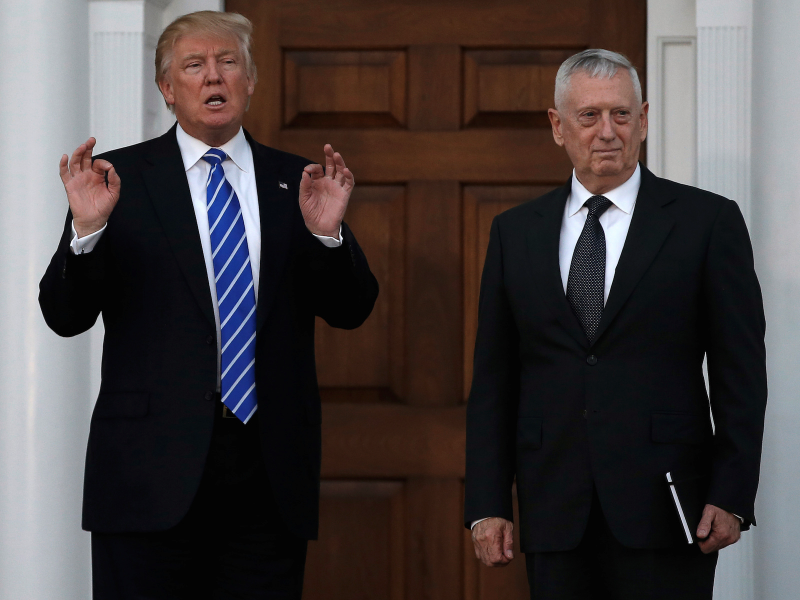
"When you go to General Mattis you better have your facts in line, because he probably already knows," Kent told Business Insider, though he added that he welcomed input from others. But, "when you leave a meeting, there is no doubt in your mind the direction of where Gen. Mattis wants to go."
"People say he’s like Chesty Puller," Kent said, noting the legendary Marine officer Lt. Gen. Lewis Puller, nicknamed 'Chesty' because he earned five Navy Crosses. "No, he’s a General Mattis, in his day. He is General Mattis. He’s just an awesome leader.”

"This guy leads by example. He’s not out there trying to be a hero," Kent said. "He’s out there leading Marines and he’s telling them ‘I am just like you, and I can go where you go.'”

He added: "One thing he didn't like was when Marines were in the dirt, and senior leadership was in a cozy little area."
Mattis' philosophy, according to Kent, was that if the junior Marines were in the dirt, so was everyone else at the top.
"He's a leader by example. That's the best type of leader for any organization. He's not the type that's 'do as I say, not as I do.' He's out there doing it."
Shane Hafner, a medically retired infantry Staff Sgt. who was wounded by an improvised explosive device in 2010, had only one meeting with Mattis, but it left a notable impression on him.
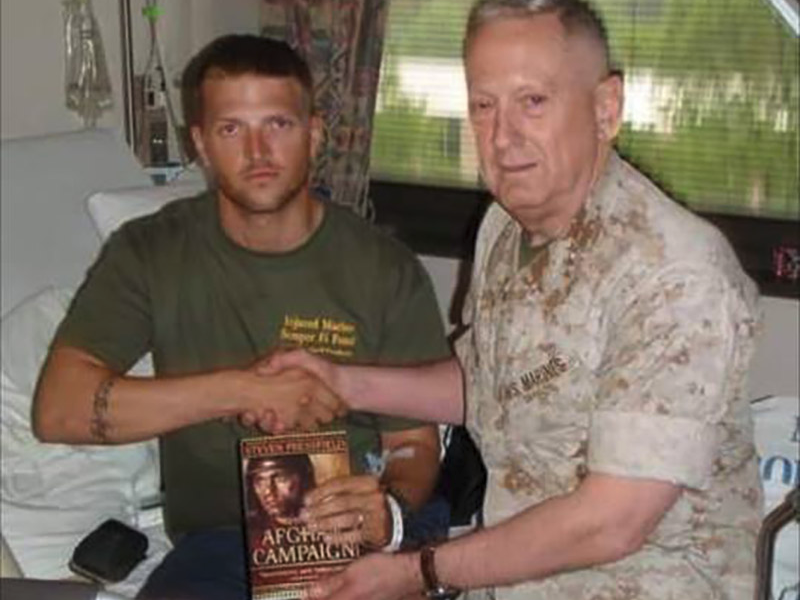
Hafner had just come to after having surgery, and attendants told him that Mattis was coming for a visit. He told Business Insider that he was excited, but wondered if he needed a haircut first.
Mattis came in, told him "at ease," and started talking with him, man to man. Hafner told him that he hoped Mattis would one day become Commandant of the Marine Corps, but Mattis told him that wasn't likely, since he said, "I don't have the best track record with quotes."
The general asked if there was anything he could do for the sergeant, and he told him he'd like his Kevlar helmet back - bloodied but still intact - which the hospital had taken away from him.
The next time he got out of surgery, Hafner told BI, "There was my helmet sitting there at the foot of my bed."
"Even off the battlefield, he improves morale," Hafner said.
